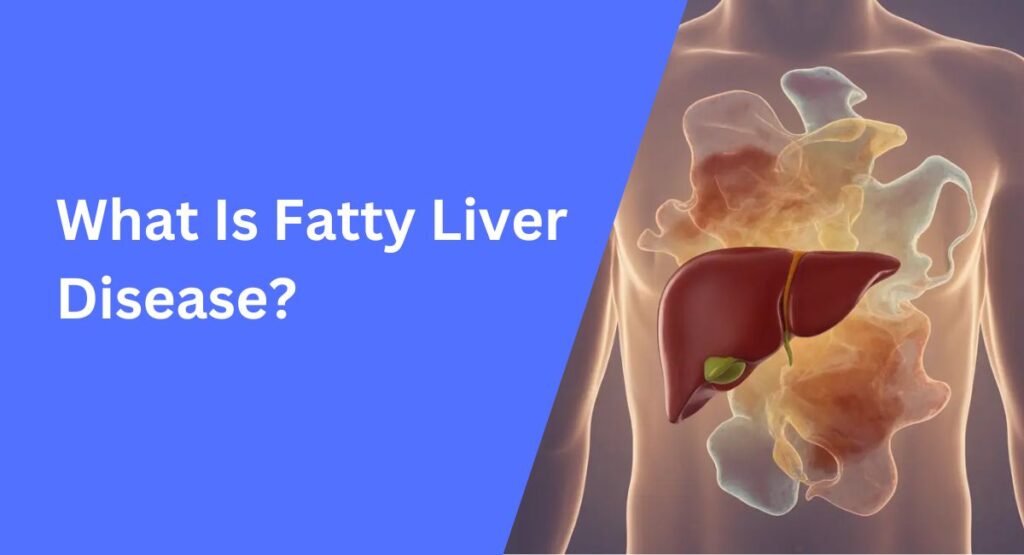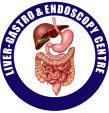Fatty Liver: Causes, Symptoms, and Treatment Options
Feeling tired, bloated, or noticing discomfort around your upper abdomen? These could be early signs of fatty liver disease, one of the most common liver conditions affecting millions worldwide.
What makes it tricky is that it often goes unnoticed until it becomes severe. The good news is that with the right care, lifestyle changes, and timely treatment, fatty liver can be managed — and even reversed.
If you’re searching for a trusted Liver specialist in Mulund or a Fatty liver specialist in Mulund, this guide will help you understand the condition, its causes, symptoms, and available treatment options.

What Is Fatty Liver Disease?
Fatty liver disease, also known as hepatic steatosis, occurs when excess fat builds up in the liver cells. A small amount of fat is normal, but when it exceeds 5–10% of the liver’s weight, it becomes a medical concern.
There are two main types:
- Non-Alcoholic Fatty Liver Disease (NAFLD):
Caused by factors unrelated to alcohol — such as obesity, poor diet, or diabetes. It’s the most common type and can occur in people who rarely drink alcohol. - Alcoholic Fatty Liver Disease (AFLD):
Triggered by excessive alcohol intake, leading to liver inflammation and, if untreated, cirrhosis.
If ignored, fatty liver can progress to non-alcoholic steatohepatitis (NASH), fibrosis, or even liver failure. That’s why timely diagnosis and intervention from a liver specialist in Mulund are crucial.
Common Causes of Fatty Liver
Several lifestyle and health factors can lead to fat buildup in the liver:
- Obesity: Excess body fat is one of the biggest contributors to fatty liver.
- Poor Diet: High intake of fried food, sugary beverages, and processed carbs can strain the liver.
- Diabetes and Insulin Resistance: When your body doesn’t process insulin effectively, fat tends to accumulate in the liver.
- High Cholesterol or Triglycerides: Imbalance in lipid levels can directly affect liver health.
- Alcohol Consumption: Regular or heavy drinking leads to alcoholic fatty liver disease.
- Sedentary Lifestyle: Lack of physical activity slows metabolism and increases fat deposition.
- Certain Medications: Long-term use of drugs like corticosteroids or certain cancer medications can impact liver function.
- Genetics: Family history can play a role in how your liver processes fat.
Symptoms of Fatty Liver
Most people with fatty liver disease don’t notice symptoms in the early stages. However, as fat accumulation increases, the following signs may appear:
- Constant fatigue or weakness
- Pain or heaviness in the upper right abdomen
- Unexplained weight loss or loss of appetite
- Swelling or bloating
- Mild yellowing of skin or eyes (jaundice)
- Nausea or indigestion
- Mental confusion or trouble concentrating (in advanced stages)
If you notice these symptoms, it’s best to consult a fatty liver specialist in Mulund to prevent further complications.
How Fatty Liver Is Diagnosed
Fatty liver often goes undetected until a doctor orders tests for another reason. Diagnosis usually includes:
- Physical Examination:
Checking for an enlarged liver or tenderness around the upper abdomen. - Blood Tests:
Elevated liver enzymes (ALT, AST) can indicate inflammation or liver stress. - Imaging Tests:
- Ultrasound: A common and painless method to detect fat buildup.
- CT Scan or MRI: Provides a clearer picture of liver condition.
- Fibroscan: Measures liver stiffness and fat content.
- Ultrasound: A common and painless method to detect fat buildup.
- Liver Biopsy:
In certain cases, a small tissue sample is tested to confirm inflammation or scarring.
Early diagnosis by a liver specialist in Mulund can help control and even reverse liver damage before it progresses.
Treatment Options for Fatty Liver
There’s currently no single medication for fatty liver, but a combination of lifestyle changes and medical treatments can help manage it effectively.
1. Weight Management
Losing 7–10% of body weight can significantly reduce liver fat and inflammation.
2. Balanced Diet
Switch to a low-fat, high-fiber diet rich in vegetables, fruits, lean protein, and whole grains. Avoid sugary foods, refined carbs, and alcohol.
3. Regular Exercise
At least 30 minutes of moderate exercise (like walking, cycling, or swimming) five days a week can improve insulin sensitivity and reduce liver fat.
4. Managing Diabetes and Cholesterol
Keep blood sugar and lipid levels under control with proper medication and regular check-ups.
5. Medications (If Prescribed)
Doctors may prescribe vitamin E or insulin-sensitizing drugs for specific cases under supervision.
6. Regular Monitoring
Routine follow-ups with a fatty liver specialist in Mulund help track progress and adjust treatment as needed.
Diet and Lifestyle Tips for a Healthy Liver
A healthy lifestyle can do wonders for your liver. Try these expert-approved tips:
- Eat more green leafy vegetables and fiber-rich foods.
- Limit intake of red meat and sugary snacks.
- Replace refined oils with olive or mustard oil.
- Stay hydrated — drink at least 2–3 liters of water daily.
- Avoid late-night eating and processed fast food.
- Reduce alcohol intake or stop it completely.
- Maintain a regular sleep schedule.
If acidity or bloating is common, consulting an Acidity specialist in Mulund can help rule out related digestive issues.
When to See a Doctor
You should consult a liver specialist in Mulund immediately if you experience:
- Persistent abdominal pain or swelling
- Jaundice (yellow skin or eyes)
- Unexplained fatigue or weight loss
- Dark urine or pale stools
- Nausea, vomiting, or confusion
Ignoring these signs may allow fatty liver to progress to cirrhosis or liver failure. For chronic digestive issues, a Constipation specialist in Navi-Mumbai can also help evaluate related gut health factors contributing to liver strain.
Conclusion
Fatty liver disease may not always show symptoms, but it can quietly harm your liver over time. The key to prevention lies in early diagnosis, healthy eating, regular exercise, and ongoing medical care.
If you suspect any symptoms or have a family history of liver disease, consult a fatty liver specialist in Mulund or a liver specialist in Mulund for timely evaluation and treatment.
Remember, your liver works hard every day — take care of it before it’s too late.
FAQs
Q1: Can fatty liver be reversed naturally?
Yes. In early stages, fatty liver can often be reversed through weight loss, healthy diet, and exercise.
Q2: Is fatty liver a serious condition?
If ignored, it can progress to liver inflammation, fibrosis, or cirrhosis, which are serious and may lead to liver failure.
Q3: How long does it take to recover from fatty liver?
Recovery depends on the stage of the disease and lifestyle changes, but noticeable improvement can occur within 3–6 months of consistent care.
Q4: Does fatty liver cause acidity or bloating?
Yes, many patients experience indigestion or acidity. Consulting an acidity specialist in Mulund can help manage these symptoms.
Q5: Who should I see for fatty liver treatment?
You should visit a fatty liver specialist in Mulund or liver specialist in Mulund who can provide personalized treatment plans.
